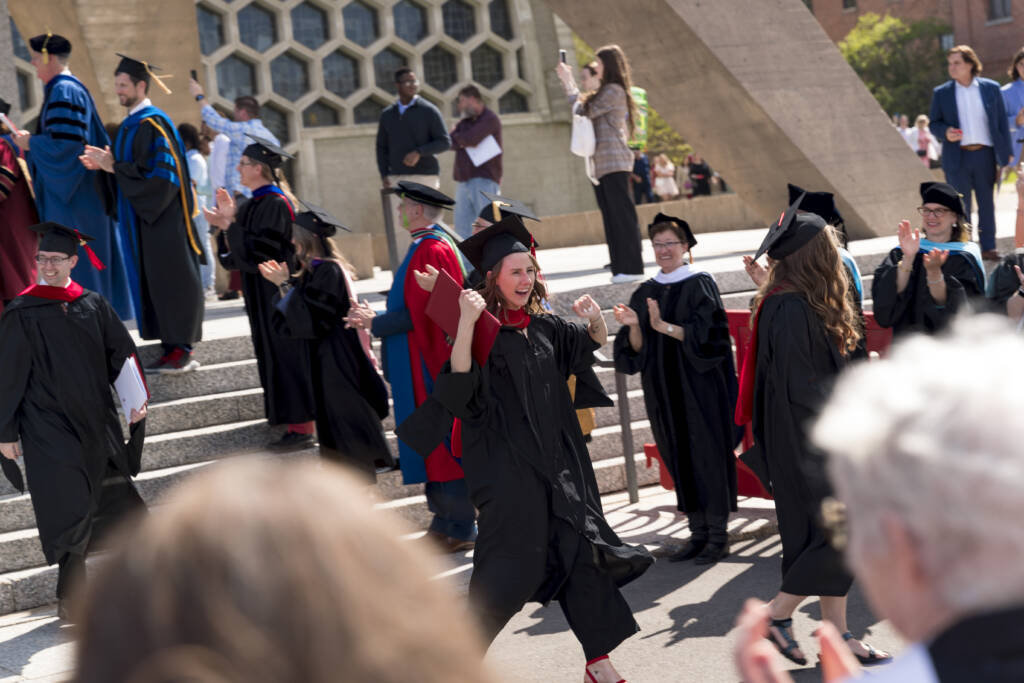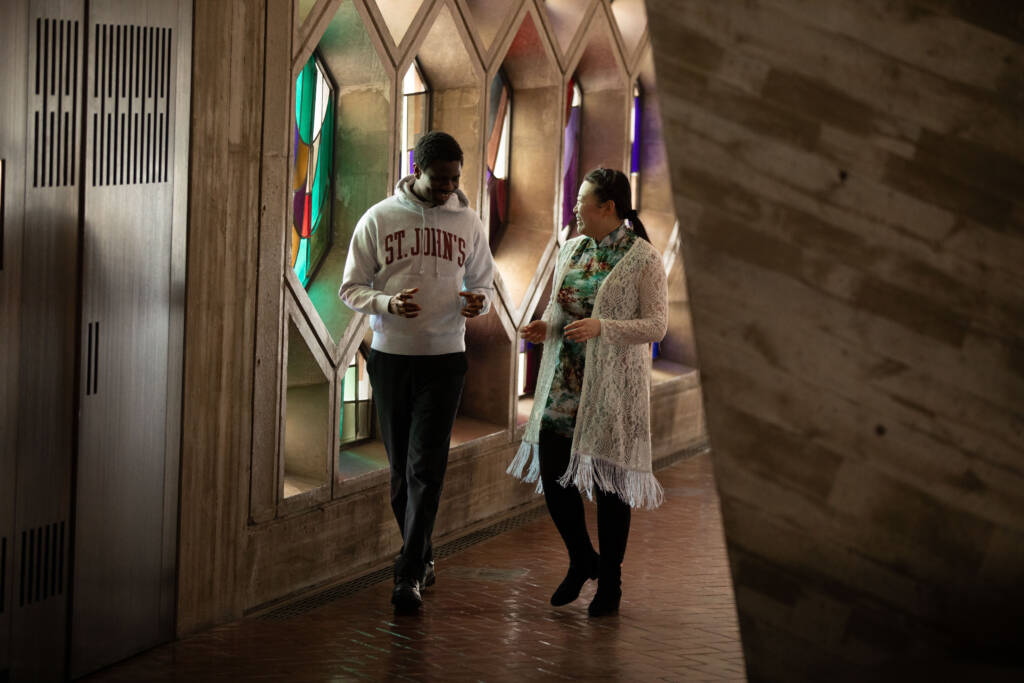 Home
Home
School of Theology and Seminary
Educational Effectiveness & Accreditation

Educational Effectiveness
Steeped in the Benedictine tradition, Saint John’s classrooms are places of welcome, hospitality, and prayer. Students are encouraged to allow the fruits of contemplation to inform theology and pastoral life, to listen to one another in order to dialogue, and to see that all theology is both rooted in a lived context and yet speaks to God’s stability.
We take seriously the goals of spiritual growth, wisdom, and the ability to lead others in lives of faithful discipleship. Each of the SOT/Sem’s six degree programs are on a repeating cycle of review, to be repeated every four years. These reviews, conducted by a committee of faculty stakeholders, have included the following elements:
- The overall health of the program, in terms of recruitment, retention, student health within the program, and gainful vocational work after the program
- Educational effectiveness, in terms of the assessment of student learning outcomes through instructor analysis and course-level assessment
- The assessment of capstone projects or comprehensive exams; and
- Overall assessment of the effectiveness of a degree’s learning outcomes and any needed revisions to them.
These review metrics—qualitative and quantitative in nature—include mid-degree assessments of each ministerial student, annual reviews of ordination candidates, and regular evaluations of summative work in comprehensive examinations, theses, and integration seminar projects. We also use satisfaction indicators such as course evaluations, student and alumni surveys, and interviews. This information is used by the faculty and administration not only to assess student achievement but also to assess and modify the curricular and formation programs of the School.
In exit surveys and alumni interviews, 100% of students agreed that their degree program had prepared them well for future work or study.
From 2017-2025:
- 99% of all graduates found employment or went to further study within a year of graduation.
- 95% of graduates work in a church-based vocation, in the following areas:
- 37% Pastoral Ministry
- 24% Ministry within Religious Life
- 20% Higher Education, Campus Ministry, Further Studies (N.B. Our graduates are pursuing further education at Boston College, Marquette University, the Pontifical Athenaeum of Sant’Anselmo, the University of Miami, the University of Notre Dame, the University of St. Andrews, and Saint Louis University.)
- 6% Diocesan, Nonprofit, Faith-based Organizations
- 6% Healthcare, Counseling, Chaplaincy
- 2% Faith-based Publishing
For questions and inquiries about the School of Theology and Seminary’s educational mission, assessment and effectiveness efforts, please contact the Dean’s Office at [email protected] or by phone at 320-363-2622.
Accreditation
Saint John’s School of Theology and Seminary is accredited by the Commission on Accrediting of the Association of Theological Schools and the Higher Learning Commission. The following degree programs are approved: MDiv, MA Liturgical Music, MAM, MTS, MAT, and ThM.
Commission on Accrediting of the Association of Theological Schools
10 Summit Park Drive
Pittsburgh, PA 15275
Telephone: 412-788-6505
Fax: 412-788-6510
Website: http://www.ats.edu
The Higher Learning Commission
230 South LaSalle Street, Suite 7-500
Chicago, IL 60604
Telephone: 800-621-7440
Email: [email protected]
Website: https://www.hlcommission.org/

